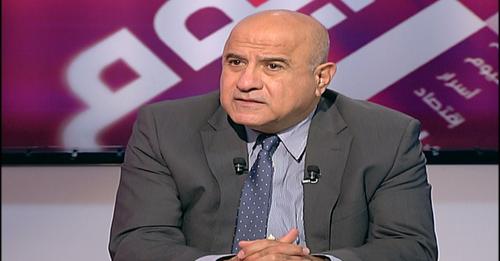Lebanon, Iraq, Venezuela and the Tricky Nexus
Charles Elias Chartouni/October 24/2021
شارل الياس الشارتوني: لبنان والعراق وفنزويلا والروابط الخادعة
The latest evolutions in the three respective countries are quite overlapping and reminiscent of the commonalities they share in spite of their geopolitical distances.The three have been dealing with the difficulties of ramshackle statehood, dysfunctional governance, curtailed sovereignty, endemic corruption, oligarchic foreclosures and pervasive insecurity. Lebanon’s political institutions have been hijacked by cohorts of oligarchs who ultimately traded power with radical Shiite Hezbollah bent on their destruction and the reconfiguration of Lebanese geopolitics; Iraq is still dealing, eighteen years after the downfall of Saddam Hussein, with the intricacies of State building, restoration of national sovereignty, control of oligarchic plundering and the awkward management of ethno-religious pluralism; As for Venezuela, it is still under the spell of a debunked leftist fallacy which managed to destroy the country, its institutions and transform its oil resources into the financial lifelines of a corrupt military oligarchy and its allies in the organized criminality underworld.
The three partake in a common pattern while striving to build the walls of an imaginary international counter-system, whose coordinates are ill defined and elusive. Iran tries, through its Hezbollah franchises and alliance with Venezuela, to promote the rogue state model and set the coordinates of an international architecture made up of a complex web of fledgling dictatorships, organized criminality, and institutional terrorism. The pattern set by Hugo Chavez and Ahmadi Nejad is still on hold while both dictatorships are mired in systemic crises and a cohort of plagues ranging between structural violence and rampant poverty, urban squalor, environmental disasters, financial insolvency, pervasive insecurity and socio-economic disarray. Their survival owes to Venezuelan State Terrorism (FAES killing squads, 18000 since 2016…) and Iranian political executions (30.000 since 1988), while their legitimacy has dwindled dramatically at a time when they have witnessed systemic socio-economic breakdowns, running inflation, massive unemployment and inability to jump start self stultifying economic systems. While Lebanon is pursuing its race into the abyss, its oligarchic foreclosures have doubled down, corruption has become a hallmark and the Hezbollah is pursuing the dismantling of State institutions, and preparing for substantial geopolitical inflections. Iraq’s attempt to extract itself from Iranian clasp, manage its gradual transition to democracy after the US withdrawal, and steer its inter-ethnic conflicts away from the sway of violence and domination politics, have a staggering record with major qualitative leaps under Mustapha al Khadhimi, the relative distancing of Muqtada al Sadr from Iranian controls, and the moral influence of Grand Ayatollah al Sistani.
The convoluted nexus between the three countries lies on the crossroads between domestic repression, State terrorism and organized criminality in both internal and external variants, the angling for an alternative international order with its inchoate coordinates and fleeting partnerships, and the adoption of repression and sabotaging politics as best means to secure survival in an inimical domestic and regional environment, where bankrupted ideological politics leave no room for alternative reform policy making, and lead to regional and international destabilization and the muddied waters of underground economies and international criminality. The chances of stabilization, democratization and reform dynamics, in each of these countries, should be predicated on severing the convoluted nexuses, engaging the international community and the long awaited democratic and liberal reforms, which have been hobbled by the interlocking foreclosures set by regimes whose violence and ineptitude are the functional equivalent of their undermined legitimacy, and inability to disengage the beaten tracks of bankrupted dystopias and oligarchic entrenchments.






















